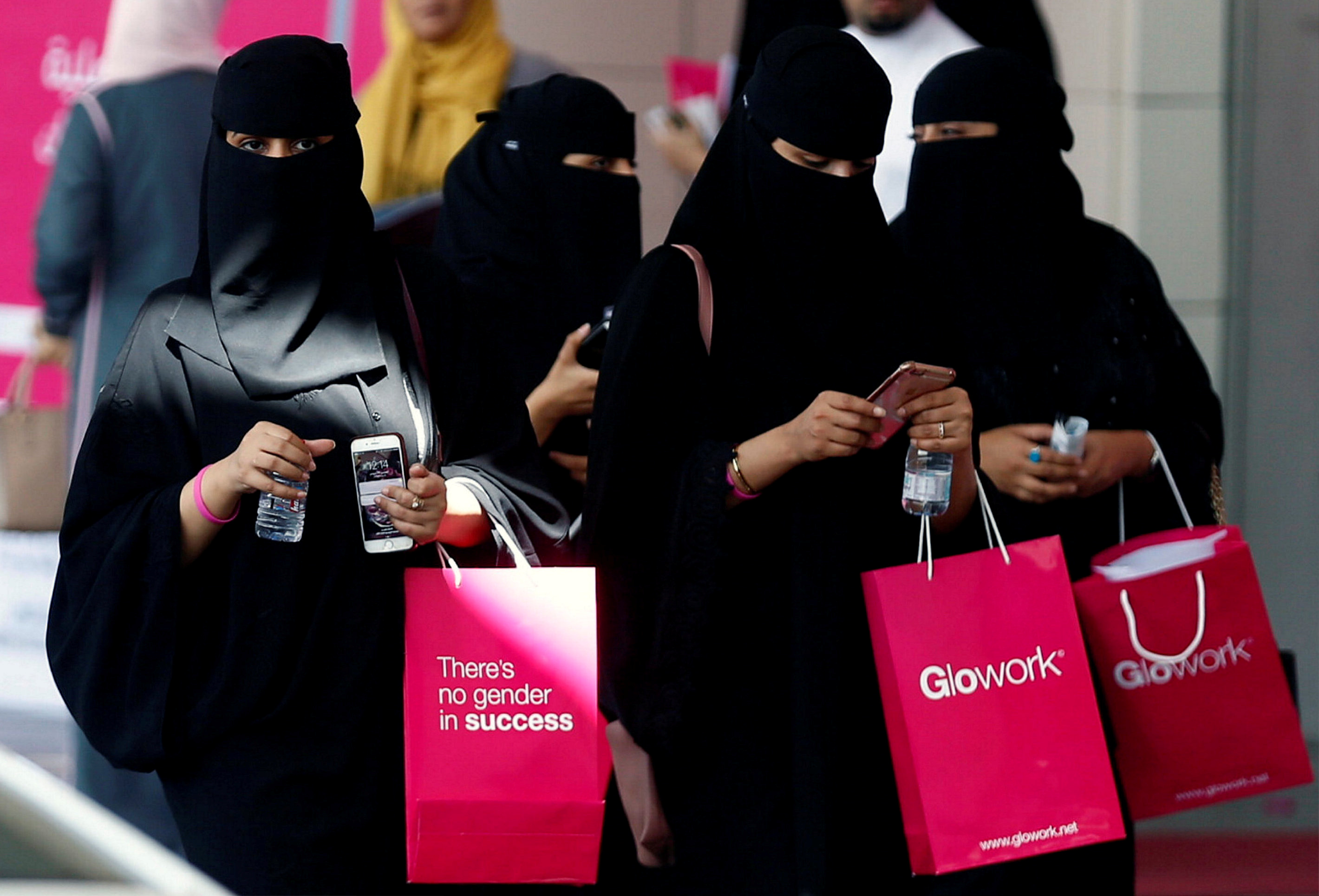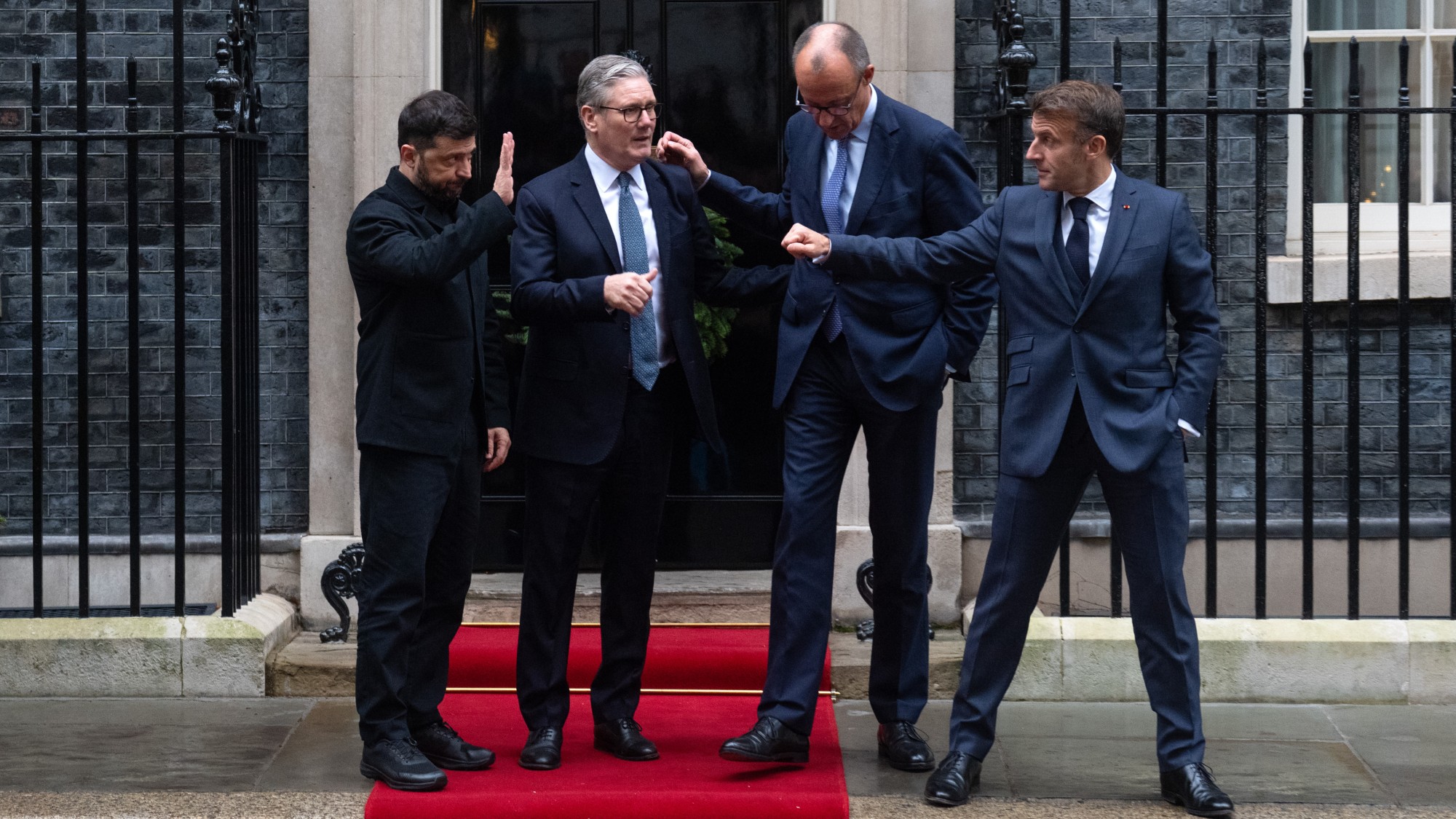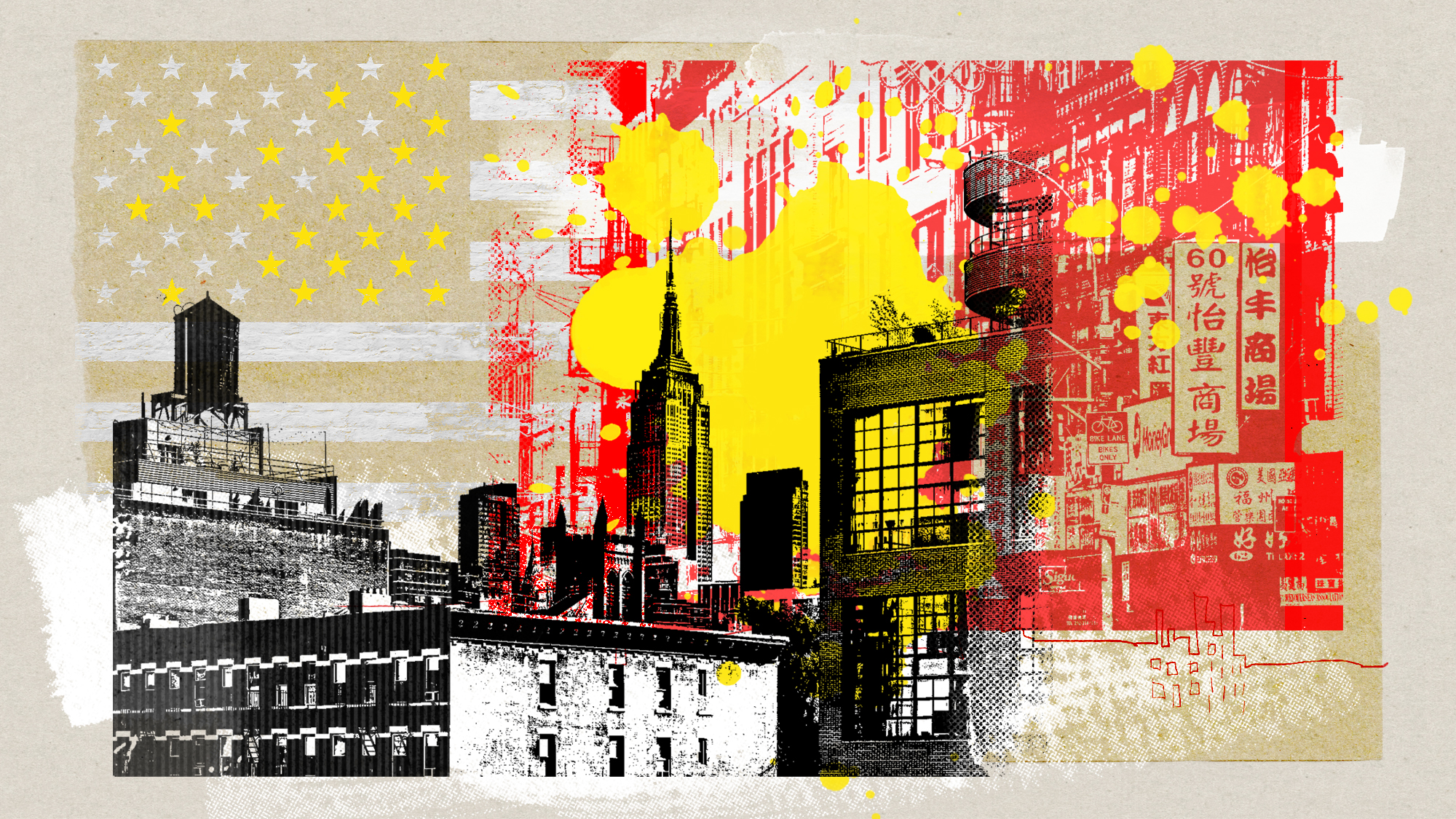Saudi America
Saudi Arabia wants to be more like America. Does America want to be more like Saudi Arabia?


Saudi Arabia, an Islamic theocracy, is finally taking a small step toward progress by easing its ban on female driving. Meanwhile, America, a constitutional democracy, is taking a big step toward regression by selecting Roy Moore, a vehement proponent of Christian theocracy, as the Republican nominee to be Alabama's junior senator.
Sadly, it seems, faith in American-style liberalism is dimming in America just as it is penetrating the remaining bastions of illiberalism in the world.
Moore calls Islam a "fake religion" while spreading the fake news that unnamed Christian communities in Illinois and Indiana are being forced to live under Islamic law. Meanwhile, his own hard-right form of Christianity is Sharia's spiritual twin.
The Week
Escape your echo chamber. Get the facts behind the news, plus analysis from multiple perspectives.

Sign up for The Week's Free Newsletters
From our morning news briefing to a weekly Good News Newsletter, get the best of The Week delivered directly to your inbox.
From our morning news briefing to a weekly Good News Newsletter, get the best of The Week delivered directly to your inbox.
Moore has twice been defrocked as chief justice of the Alabama Supreme Court, first for insisting on displaying a massive plaque of the Ten Commandments in his court in defiance of the First Amendment's establishment clause, and then more than a decade later for refusing to hand marriage licenses to same-sex couples after the Supreme Court legalized gay marriage. Far from showing regret, he regards these as justified acts of civil disobedience because, like Islamic fundamentalists, he believes that God's law supersedes man's law. Indeed, he considers God to be "the only source of our law, liberty, and government," and made the restoration of Christian "virtue and morality" the cornerstone of his campaign. Nor is there much daylight between his idea of Christian virtue and the Islamic strictures that he demonizes.
Moore would ban not just reproductive choice for women but also homosexuality, which he has condemned as "abhorrent, immoral, detestable, a crime against nature, and a violation of the laws of nature and of nature's God." In fact, he has repeatedly refused to rule out the death penalty against gays. He considers the World Trade Center attack God's retribution against America for "legitimizing sodomy." This means that as far as he is concerned, the 9/11 Islamist extremists were emissaries of God.
Most chilling, however, is that he is the author of the misnamed 2005 Constitution Restoration Act that would give Congress the power to remove any judge who refuses to recognize God as the source of America's law. The bill also seeks to limit the power of the Supreme Court to overrule or punish any state official or judge acting in the name of God's law and, instead, would impeach the judges who take on such cases. Think of it as the Christian version of Taliban rule with slightly more checks and balances and fewer beards.
Many explanations have been proffered for Moore's victory, including the failure of congressional Republicans to deliver on their promise to repeal and replace ObamaCare, the close ties of Moore's primary opponent, Luther Strange, with Alabama's disgraced, scandal-plagued governor, and the conservative base's general disgust with the Republican establishment that backed Strange.
A free daily email with the biggest news stories of the day – and the best features from TheWeek.com
There is some truth to all of these explanations. But the far more disturbing fact is that the GOP's hardcore base has become deeply hostile to the true source of American greatness — its receptiveness to outside influences, whether in the form of ideas, people, or products. It has become the enemy of what the British philosopher Karl Popper famously called the "open society" that sees alien influences not as a threat but as a source of progress allowing it to constantly reinvent and improve itself.
The regressive ideal that America is now gravitating toward is exactly the kind of medieval social vision that Saudi Arabia, thanks to the influence of hardline Wahhabi clerics not dissimilar to Moore, embraced three decades ago. The lifting of the driving ban marks an effort to overturn this vision. It is not an isolated step either, but part of a sweeping reform agenda called Vision 2030 that the country's 31-year-old Crown Prince Muhammad bin Salman — affectionately called MBS — has announced to extricate Saudi Arabia's economy and society from a religious chokehold. Indeed, apart from letting women get behind the wheel, he also wants to build the country's entertainment industry beyond restaurants and shopping malls, doubling the number of cultural events annually including standup comics, Japanese orchestra, theater, and more. Women will be allowed to not just perform but also watch along with men. MBS also wants to build the nation's tourist industry, including resorts along the Red Coast meeting "international standards" — a euphemism for gender-mixed beaches where at least foreign women will be allowed to sport bikinis.
As Trumpists shriek against globalism, MBS actually wants to open up the state-owned oil giant Aramco to global markets — which means that foreigners will be able to own its biggest asset, or at least a part of it.
Why is MBS, who is far from a flawless figure, liberalizing Saudi society? Because he knows what closing the country has done — namely, create a moribund economy that is overly dependent on exploiting the country's fast-depleting oil reserves, a whole generation of enervated young men who have lost their will to work due to chronic unemployment, and legions of women who are increasingly getting educated but whose talents the country can't harness due to its backward religious notions. Indeed, just when Moore wants to discriminate against gays, curtail reproductive choice for women, and limit religious liberty (he believes America's guarantee of religious freedom is meant only for Christians), Saudi men and women are clamoring for more personal freedom — and getting it.
None of this is to say that Saudi Arabia will anytime soon become a mecca of liberalism or that America will return to the days of puritan New England. Moore may yet be defeated by a Democrat in December, and, even if he is elected, America's institutions, after 250 years of liberalism, are far too strong to simply succumb to the reactionary forces he represents. Conversely, Saudi Arabia's ruling classes have been in the business of dictating the religious life of their citizenry for too long to simply give up overnight.
Still, it is unfortunate that just when Saudi Arabia is driving in America's direction, right-wing populists are driving America in Saudi Arabia's.
Shikha Dalmia is a visiting fellow at the Mercatus Center at George Mason University studying the rise of populist authoritarianism. She is a Bloomberg View contributor and a columnist at the Washington Examiner, and she also writes regularly for The New York Times, USA Today, The Wall Street Journal, and numerous other publications. She considers herself to be a progressive libertarian and an agnostic with Buddhist longings and a Sufi soul.
-
 Will there be peace before Christmas in Ukraine?
Will there be peace before Christmas in Ukraine?Today's Big Question Discussions over the weekend could see a unified set of proposals from EU, UK and US to present to Moscow
-
 Quiz of The Week: 6 – 12 December
Quiz of The Week: 6 – 12 DecemberQuiz Have you been paying attention to The Week’s news?
-
 The week’s best photos
The week’s best photosIn Pictures A man's best friend, the elephants in the room, and more
-
 Femicide: Italy’s newest crime
Femicide: Italy’s newest crimeThe Explainer Landmark law to criminalise murder of a woman as an ‘act of hatred’ or ‘subjugation’ but critics say Italy is still deeply patriarchal
-
 Brazil’s Bolsonaro behind bars after appeals run out
Brazil’s Bolsonaro behind bars after appeals run outSpeed Read He will serve 27 years in prison
-
 Americans traveling abroad face renewed criticism in the Trump era
Americans traveling abroad face renewed criticism in the Trump eraThe Explainer Some of Trump’s behavior has Americans being questioned
-
 Nigeria confused by Trump invasion threat
Nigeria confused by Trump invasion threatSpeed Read Trump has claimed the country is persecuting Christians
-
 Sanae Takaichi: Japan’s Iron Lady set to be the country’s first woman prime minister
Sanae Takaichi: Japan’s Iron Lady set to be the country’s first woman prime ministerIn the Spotlight Takaichi is a member of Japan’s conservative, nationalist Liberal Democratic Party
-
 Russia is ‘helping China’ prepare for an invasion of Taiwan
Russia is ‘helping China’ prepare for an invasion of TaiwanIn the Spotlight Russia is reportedly allowing China access to military training
-
 Interpol arrests hundreds in Africa-wide sextortion crackdown
Interpol arrests hundreds in Africa-wide sextortion crackdownIN THE SPOTLIGHT A series of stings disrupts major cybercrime operations as law enforcement estimates millions in losses from schemes designed to prey on lonely users
-
 China is silently expanding its influence in American cities
China is silently expanding its influence in American citiesUnder the Radar New York City and San Francisco, among others, have reportedly been targeted
